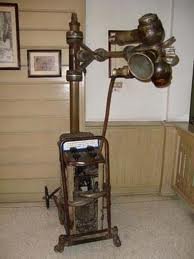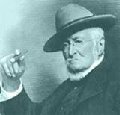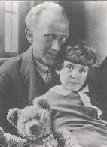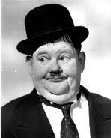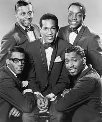The first European to set foot on the island was the Portuguese explorer Juan Rodríguez Cabrillo, who sailed in the name of the Spanish crown. On October 7, 1542, he claimed the island for Spain and christened it San Salvador after his ship (Catalina has also been identified as one of the many possible burial sites for Cabrillo). Over half a century later, another Spanish explorer, Sebastián Vizcaíno, rediscovered the island on the eve of Saint Catherine's day (November 24) in 1602. Vizcaino renamed the island in the saint's honor.
The colonization of California by the Spanish coincided with the decline of the Pimugnans. They suffered from the introduction of new diseases to which they had little immunity and the disruption of their trade and social networks caused by the establishment of the California missions. By the 1830s, the island's entire native population were either dead or had migrated to the mainland to work in the missions or as ranch hands for the many private landowners.
Governor Pío Pico made a Mexican land grant of the Island of Santa Catalina to Thomas M. Robbins in 1846, as Rancho Santa Catalina. Thomas M. Robbins (1801–1854) a sea captain who came to California in 1823, married the daughter of Carlos Antonio Carrillo. Robbins established a small rancho on the island, but sold it in 1850 to José María Covarrubias. A claim was filed with the Public Land Commission in 1853, and the grant was patented to José María Covarrubias in 1867.[8] Covarrubias sold the island to Albert Packard of Santa Barbara in 1853. By 1864 the entire island was owned by James Lick, whose estate maintained control of the island for approximately the next 25 years.
The first owner to try to develop Avalon into a resort destination was George Shatto, a real estate speculator from Grand Rapids, Michigan. Shatto purchased the island for $200,000 from the Lick estate at the height of the real estate boom in Southern California in 1887. Shatto created the settlement that would become Avalon, and can be credited with building the town's first hotel, the original Hotel Metropole,
and pier. Though early maps labeled the town Shatto, Shatto's sister-in-law Etta Whitney came up with the permanent name of Avalon. This name was pulled as a reference from a poem by Lord Tennyson called "Idylls of the King" about the legend of King Arthur.
Is there a "secret ingredient" in your favorite meatloaf recipe? There is in ours! Our Secret Ingredient Meatloaf calls for one shortcut ingredient that doesn't just make life easier, but it makes the meatloaf so moist and flavorful, too! Aren't you glad we've let you in on our little secret?
- 1 1/2 pounds ground beef
- 1 egg
- 1 cup chunky salsa
- 1 cup coarsely crushed ranch-flavored tortilla chips
- 1 cup (4 ounces) shredded Mexican cheese blend, divided
- 1 teaspoon chili powder
- 1/2 teaspoon cumin
- 1/2 teaspoon salt
- 1/4 teaspoon black pepper
- Preheat oven to 350º. Coat a 9- x 5-inch loaf pan with cooking spray.
- In a large bowl, combine beef, egg, salsa, tortilla chips, 1/2 cup cheese, the chili powder, cumin, salt, and pepper; mix well. Place in loaf pan.
- Bake 55 to 60 minutes, or until no pink remains. Sprinkle remaining cheese over meatloaf and cook another 2 minutes, or until cheese is melted. Let stand 5 minutes, then slice and serve.
1944 – The Metropolitan Opera House in New York City hosts a jazz concert for the first time. The performers are Louis Armstrong, Benny Goodman, Lionel Hampton, Artie Shaw, Roy Eldridge and Jack Teagarden.
1990 – Washington, D.C. Mayor Marion Barry is arrested for drug possession in an FBI sting.
1813 – Joseph Glidden, American farmer who patented barbed wire (d. 1906)
1882 – A. A. Milne, English author (d. 1956)
1892 – Oliver Hardy, American comedian and actor (d. 1957)
1904 – Cary Grant, English actor (d. 1986)
1913 – Danny Kaye, American actor (d. 1987)

1941 – David Ruffin, American singer (The Temptations) (d. 1991)
1955 – Kevin Costner, American actor
National Winnie the Pooh Day on January 18th commemorates author A.A. Milne’s birthday in 1882. He brought the adorable, honey-loving bear to life in his stories, which also featured his son, Christopher Robin.
Milne’s lovable Pooh Bear, as he was fondly called, is a fictional bear inspired by a black bear named Winnie. Winnie lived at the London Zoo during World War I. The author’s son, Christopher Robin, would visit the bear often and named his own teddy bear after her and a swan named Pooh.
This friendship inspired a collection of books starting with Winnie-the-Pooh in 1926. E.H. Shepard beautifully illustrated the books.
Their adventures took them and millions of children through the Hundred Acre Woods. Each character played a unique role in the books. Whether the wisdom of Owl or Rabbit lead the group awry or a celebration ensued, the story’s characters became beloved around the world.
In the 1960s, Disney bought the rights to the Winnie-the-Pooh characters dropping the hyphen from Pooh’s name. The illustrations were a bit different, too.
Milne’s stories have been translated into over 50 languages and are considered classic children’s stories today.
HOW TO OBSERVE
Snuggle up with your favorite Pooh fan, a pot of honey, and take turns reading about the adventures of Winnie the Pooh. Share your favorite Pooh Bear adventure or quote. Watch a Winnie the Pooh movie. Listen to songs like “Return to Pooh Corner” by Kenny Loggins.
NATIONAL WINNIE THE POOH DAY HISTORY
Since at least 1986, National Winnie The Pooh Day has been observed across the country. However, we’ve been unable to identify the founder of the day. We will continue researching.













